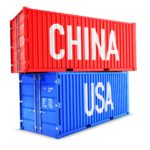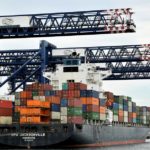New parliamentary inquiry to help SMEs tap global markets

The Joint Standing Committee on Foreign Affairs, Defence and Trade has started an inquiry into supporting Australia’s small and medium-sized businesses to leverage free trade agreements (FTAs) to pursue export opportunities.
The Chair of the JSCFADT’s Trade Sub-Committee, Mr Ted O’Brien MP, said parliamentarians want to understand the opportunities and challenges faced by small to medium-sized enterprises (SMEs) when seeking to capitalise on free trade agreements to drive exports of their goods and services into Australia’s partner countries.
“We really want to hear from those Australian small and medium-sized businesses which have successfully taken advantage of free trade agreements to export their goods or services into new markets across north Asia, and more established markets too such as New Zealand, the United States, Thailand, Singapore and Chile,” Mr O’Brien said.
“But we also want to learn from the experiences of those small and medium-sized businesses which have either been wary of the risks or costs involved in exporting, or those who have tried but not succeeded with exporting into the growing list of countries with which Australia secured free trade agreements.”
With Australia recently signing a new trade agreement with Peru and on the verge of signing the final Comprehensive and Progressive Agreement for Trans-Pacific Partnership with 11 Pacific-rim countries including new trading partners such as Canada and Mexico this month, Mr O’Brien believes the time is right for this inquiry to better support Australian small to medium exporters.
“We want insights into how supportive federal, state and territory governments and also business networks have been in encouraging smaller exporters to leverage FTAs into worthwhile new export opportunities,” Mr O’Brien said.
“There are many great Australian companies which have been able to capitalise on the opportunities presented by these FTAs and have reaped the rewards as a result. We want to ensure the benefits can be replicated many times over for other export oriented businesses,” he said.
Natural Evolution
Natural Evolution based in Walkamin Queensland offers an example of what can be achieved when Australian SMEs lift their horizons to export markets. It is the first Australian business to produce and export banana flour and now boasts a world-first pharmaceutical production plant for green bananas.
Co-founder and co-managing director Krista Watkins said Natural Evolution’s export journey began seven months ago in Japan and the company is now looking at South Korea and China.
“The Japan-Australia Economic Partnership Agreement (JAEPA) has not only allowed Natural Evolution to grow, but it has also helped to build positive relationships and connections within the international market,” Ms Watkins explained.
“If we didn’t have JAEPA in place, exporting wouldn’t be a viable option for us. The free trade agreement between the two countries prompted us to think globally and expand our business, but it also encouraged companies overseas to engage in business with us.”
Prior to JAEPA the tariff for banana flour was 9.6 per cent, it is currently 3.2 per cent with the next reduction to occur on 1 April 2018.
Nutworks
Sunshine Coast business Nutworks has also benefitted from the Federal Government’s free trade agreements in Asia.
Nutworks CEO Kylie Watson said an increase in enquires spurred by the introduction of the China-Australia Free Trade Agreement (ChAFTA), prompted the family business to start exporting their macadamias.
“It was the timing of the reduction in tariffs. We really started to see an increase in enquiries, particularly coming out of China,” Ms Watson said.
Prior to ChAFTA the tariff for macadamias was 24 per cent, this is currently 4.8 per cent and will be eliminated on 1 January 2019.
Mr O’Brien said the time is right to support Australian SMEs to seek out and capitalise on the enhanced trading opportunities.
“The free trade agreements with Japan and China were only signed in 2015 and with Korea in 2014 so the Trade Sub-Committee is seeking feedback from a range of small and medium businesses with two or three years’ experience trading goods and services in those markets.
“A lack of awareness of FTA benefits has been raised as one of the obstacles for many smaller businesses wanting to export,” Mr O’Brien said.
Terms of Reference
The Committee will examine the opportunities and challenges facing small and medium Australian export-oriented businesses that seek to leverage free trade agreements for the export of goods and services.
The inquiry will look at the products and services which are included and prioritised in free trade agreements, firms’ awareness of and access to free trade deals and look at the lessons learnt from current experience, including barriers to implementation and success in fast-tracking export opportunities.
Members will also consider the role and effectiveness of support structures and networks in helping leverage free trade agreements and building capacity to create opportunities and capturing more value from free trade agreements in the future.
The Trade Sub-Committee invites submissions from any individuals, businesses and organisations with an interest in the issues raised by these terms of reference. Submissions these points should be lodged by 20 April 2018.
The inquiry will also conduct a series of roundtables around Australia to help gather feedback and suggestions from small business exporters keen to leverage FTA opportunities.
Further details about the about the inquiry, including terms of reference and details on how to contribute a submission, can be obtained from the Committee’s website, phoning the Committee Secretariat on (02) 6277 2313 or emailing jscfadt@aph.gov.au.








